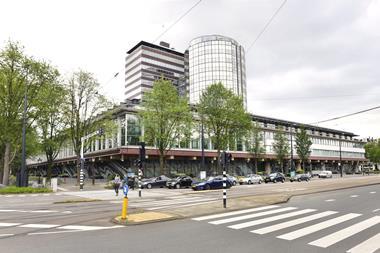The €1.8bn pension fund of Dutch supervisor De Nederlandsche Bank (DNB) has fully focused its investment policy on covering its liabilities.
In its annual report for 2016, it said it had simplified its investments and divided them between a matching and a return portfolio, both under passive management.
By placing only Dutch and German long government bonds and interest swaps in its new liabilities portfolio, the scheme said it expected to improve management of its interest rate hedge and drive down costs. Its strategic allocation to this portfolio is 60.6%
The scheme added that planned to improve the implementation of its investment principle of “passive, unless”, as well as its responsible investment policy.
Implementing responsible investment had been difficult for funds investing in credit or emerging market government bonds, the scheme said.
The new set up meant that the pension fund divested its emerging market holdings, as well as allocations to euro-denominated core bonds, global high-yield bonds and US credit.
With returns of between 10.5% and 15.9%, these investments performed well last year.
The pension fund said credit and high yield had benefited from investors’ search for income, as well as the ECB’s bond purchasing programme and limited market liquidity.
The 26% equity allocation has remained unchanged within the new strategic return portfolio. The scheme also kept 2% in cash.
However, the DNB scheme increased its property holdings to 11.4%, at the expense of fixed income.
The property allocation – largely invested through REITs – yielded 9.4% last year. Worldwide equity generated 11.2%, and UK equity also performed well, the scheme said.
Pensioenfonds DNB posted a net overall result of 11.6% for the year.
The pension fund added that it kept its interest rate hedge at 75%, as well as retaining its full currency cover of the dollar, the pound and the yen.
It said that a survey had indicated that there was no need yet for the DNB scheme to co-operate with the pension fund of fellow supervisor AFM through a general pension fund (APF).
Communication watchdog AFM has decided to place its pension arrangements into a commercial APF and has issued a tender.
Last year, the Pensioenfonds DNB granted its active partipants an indexation of 0.03% based on the consumer index. A small group of pensioners and deferred members, who still qualify for inflation compensation based on the salary index, received a 0.66% indexation.
The scheme saw its transaction costs drop 8 basis points to 0.12%, while its asset management costs decreased from 30 to 27 basis points. Its administration costs, however, rose from €326 to €369 per participant.
At year-end, the pension fund had 1,955 active participants, 1,430 pensioners and 1,625 deferred members. Last June, its coverage ratio stood at 118.3%.








